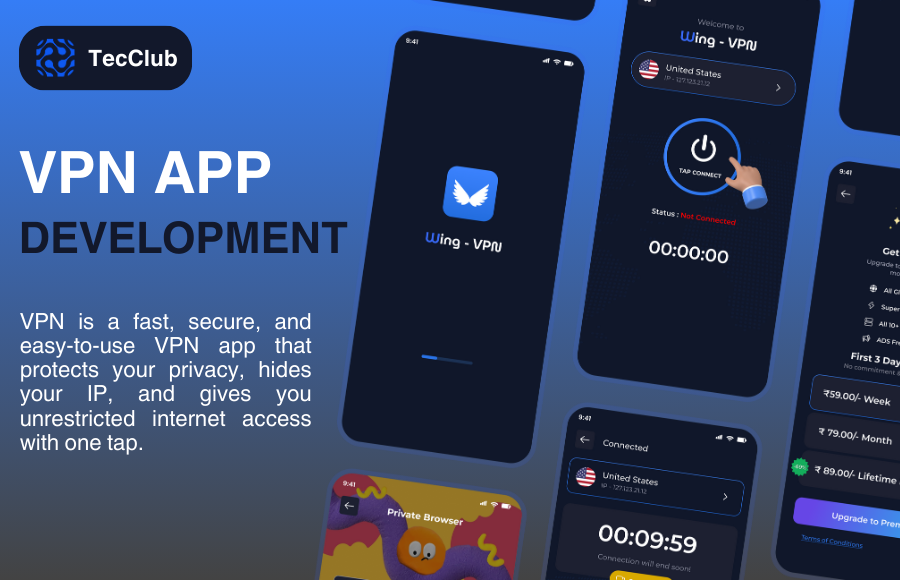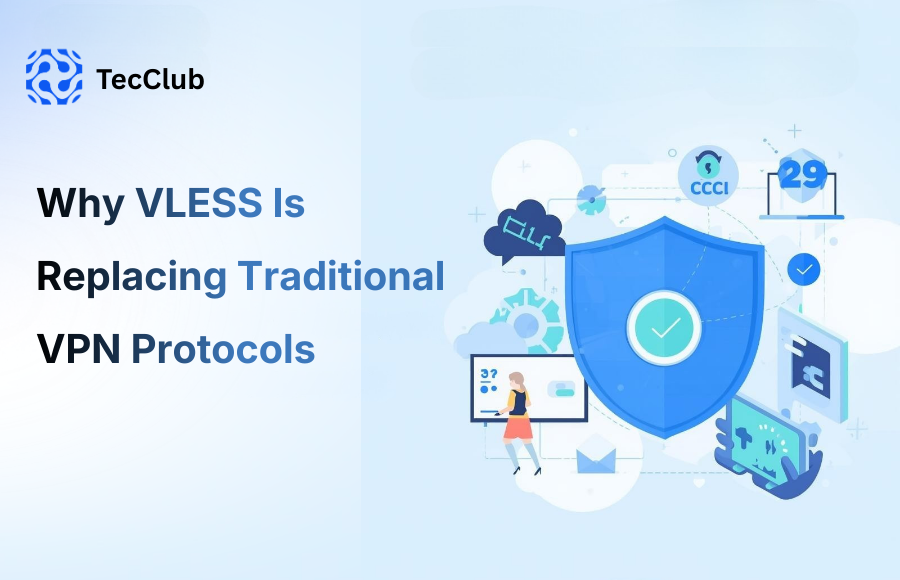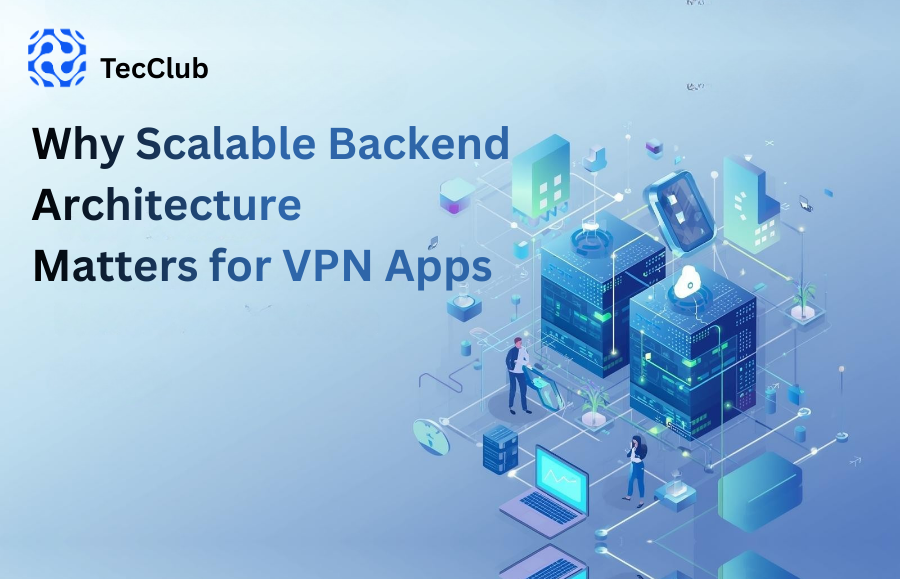
With online privacy concerns and cybersecurity risks at an all-time high, VPN app development has become one of the most in-demand areas in technology. Whether you’re a startup planning to launch your own VPN service, or a developer looking to specialize in network security, understanding the essentials of VPN app development is key.
This guide will walk you through the fundamentals, tools, challenges, and best practices for building a reliable VPN app for today’s digital users.
A Virtual Private Network (VPN) encrypts internet traffic and routes it through a secure server, masking the user’s IP address and location. VPNs are vital for:
Protecting sensitive data on public Wi-Fi.
Accessing geo-restricted content like streaming platforms.
Maintaining online anonymity by hiding browsing activity.
Bypassing censorship in restrictive countries.
Securing business networks for remote employees.
As demand grows, VPN apps are no longer “optional tools” but essential utilities for both individuals and enterprises.
When developing a VPN application, whether for Android, iOS, Windows, or cross-platform, you must understand several key technical components:
Protocols define how data is encrypted and transmitted. Popular options include:
OpenVPN – Secure and widely supported.
WireGuard – Lightweight, fast, and mobile-friendly.
IKEv2/IPSec – Stable and secure, especially for mobile devices.
L2TP/IPSec – An older but still used protocol.
Choosing the right protocol depends on balancing security, speed, and compatibility.
A strong server backbone is the heart of any VPN service. Developers need to decide:
Whether to host their own servers or use third-party providers.
Which locations to cover (users demand global coverage).
How to manage bandwidth, latency, and uptime.
Modern VPN apps must include:
AES-256 encryption for data protection.
DNS leak protection to prevent exposure.
Kill switch to block internet access if the VPN disconnects.
Obfuscation to bypass firewalls and deep packet inspection.
A good VPN must support multiple platforms:
Android & iOS (mobile-first users).
Windows & macOS (desktop users).
Browser extensions (quick access).
Unified UI/UX across platforms builds trust and usability.
Instead of building everything from scratch, developers can use proven libraries and frameworks:
OpenVPN open-source projects (for Android, iOS, and desktop).
WireGuard SDKs for mobile and server integration.
StrongSwan for IKEv2 implementations.
TunnelKit (custom VPN tunnel framework).
These speed up development while maintaining strong security.
Decide on your business model (subscription, freemium, ad-supported).
Choose whether to own servers or partner with providers.
Define the target platforms (mobile-first or full cross-platform).
Deploy servers on providers like AWS, DigitalOcean, or Vultr.
Configure with chosen protocols (WireGuard, OpenVPN, etc.).
Test for latency, speed, and stability.
Use native APIs (e.g., VpnService for Android, NEVPNManager for iOS).
Implement secure authentication and connection handling.
Manage traffic routing, encryption, and error recovery.
One-click Connect/Disconnect button.
Server list with ping times and countries.
Bandwidth and connection statistics.
Settings for protocol switching and kill switch.
Strong encryption standards.
Clear no-logs policy.
Two-factor authentication for accounts.
Firewall & DNS leak prevention.

Developing VPNs comes with unique challenges:
Performance vs. Security – Heavy encryption can slow speeds.
Battery Usage on mobile devices.
Regulatory Compliance (GDPR, CCPA, and local laws).
App Store Restrictions – VPN apps face strict review processes.
User Trust – Transparency in privacy policies is critical.
To sustain your VPN app, consider:
Subscription model (monthly/annual plans).
Freemium model (free version with limited servers, paid for premium).
Ad-supported free version.
Enterprise licensing for corporate clients.
Optimize for speed and performance.
Minimize permissions to build user trust.
Test across different networks, devices, and OS versions.
Provide transparent logging and error handling.
Ensure compliance with data privacy laws.
VPN app development is not just about building software—it’s about delivering privacy, freedom, and trust. With growing awareness of online security, businesses and developers who invest in VPN solutions stand to gain both impact and profitability.
At TecClub, we see VPN technology as a cornerstone of the secure digital future. By combining strong infrastructure, robust encryption, and user-friendly design, developers can create VPN apps that truly protect users in an interconnected world.

VLESS is emerging as a powerful alternative to traditional VPN protocols, offeri...
Read More
TecClub is a leading digital solutions company offering web & mobile apps, AI, E...
Read More